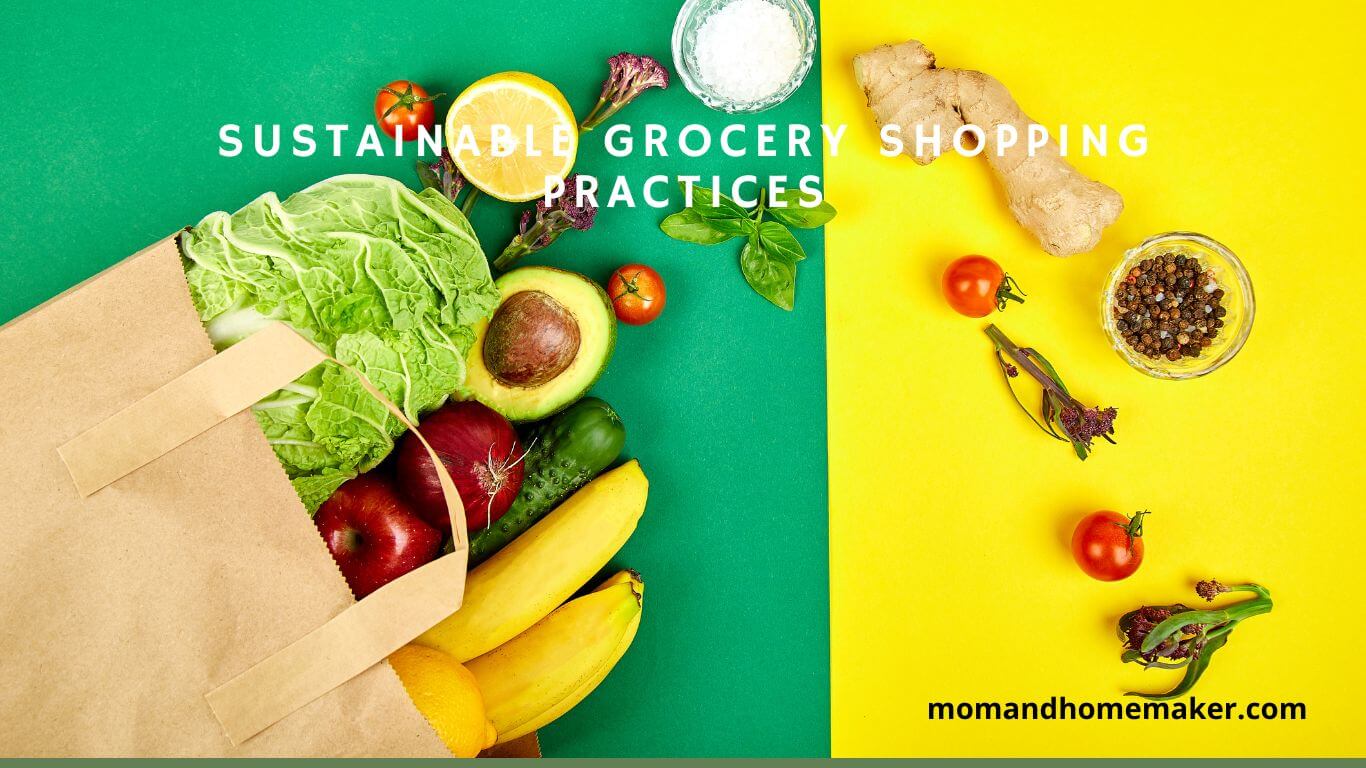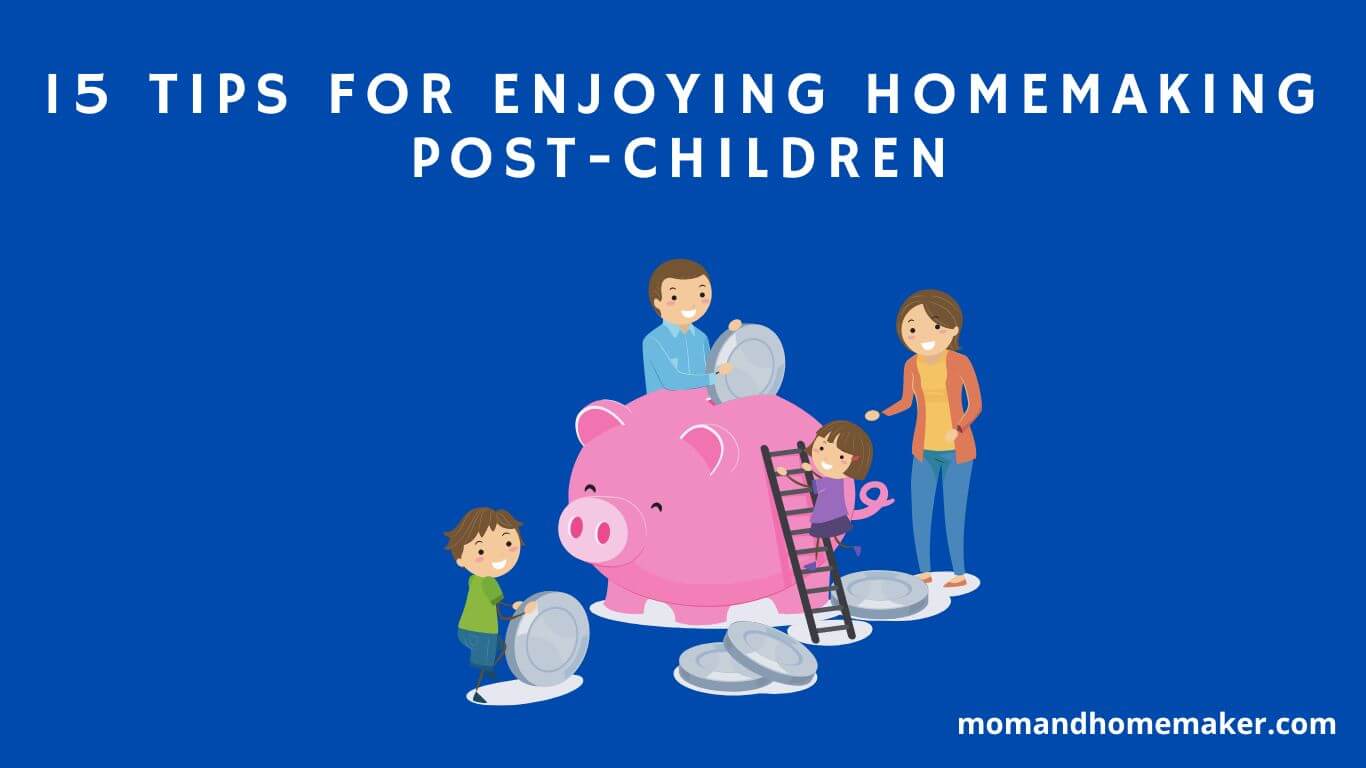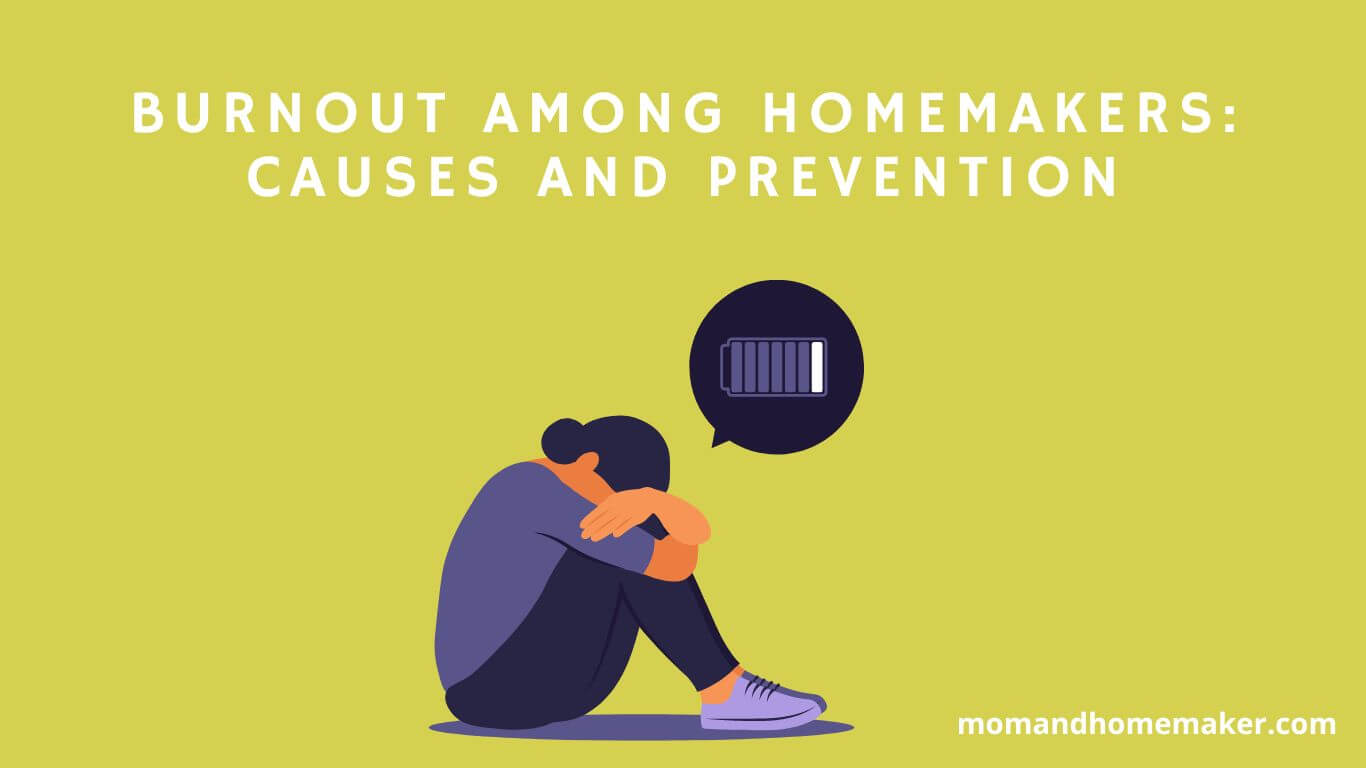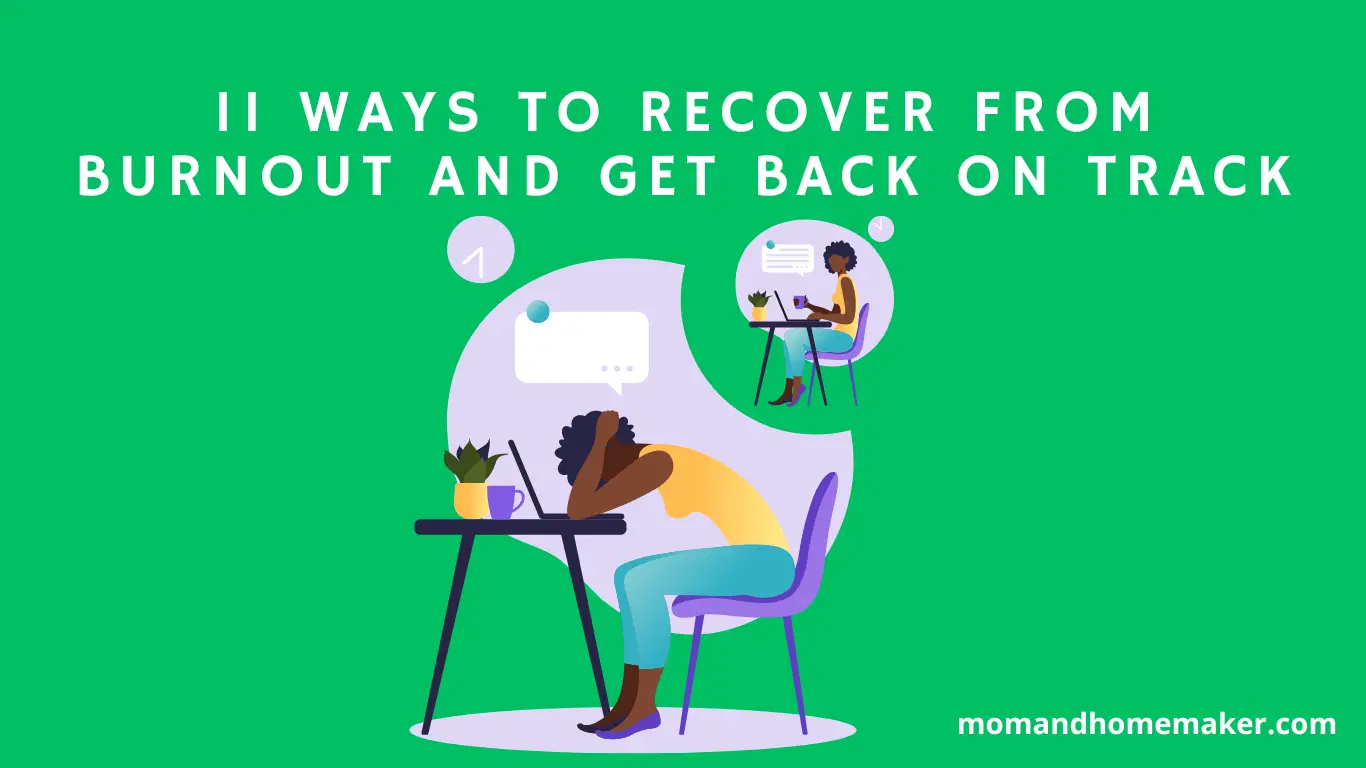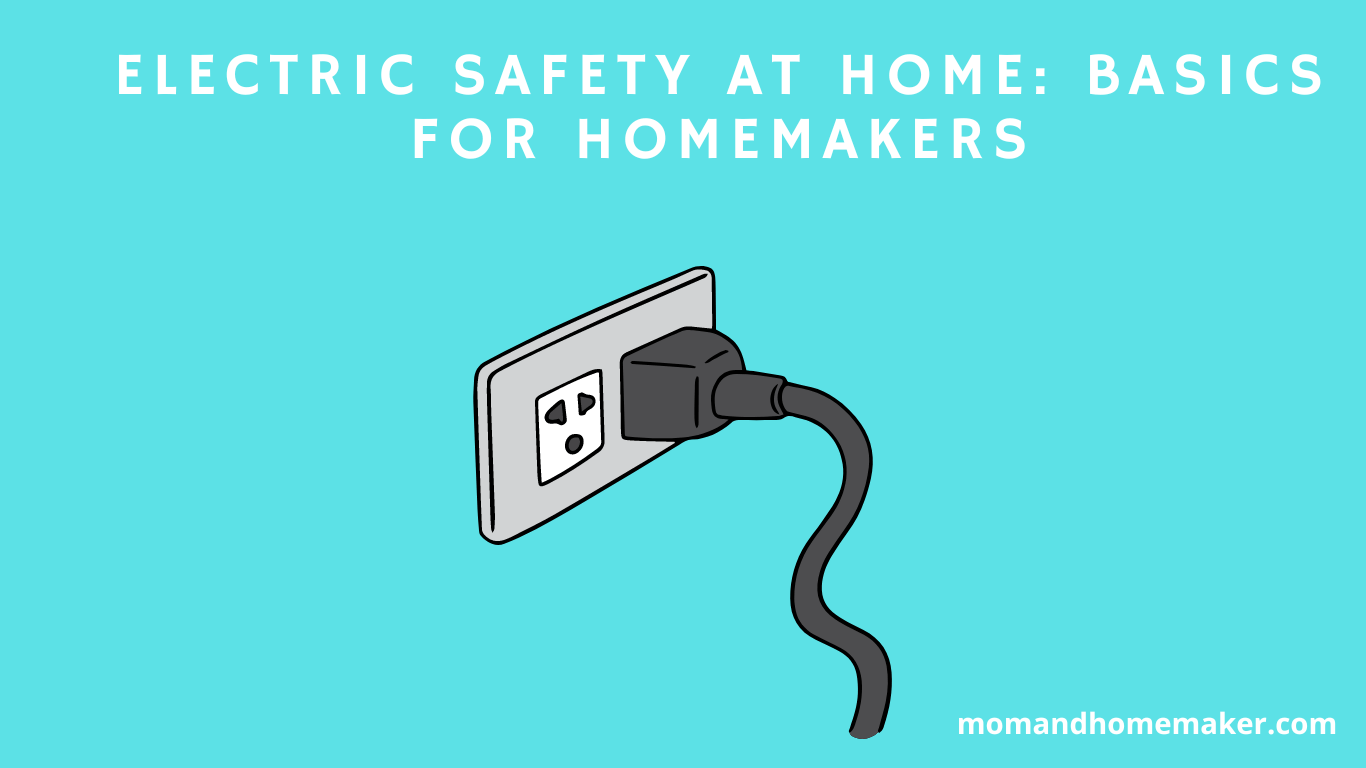Do you ever stop and think about the impact of your grocery shopping habits on the environment? By adopting sustainable grocery shopping practices, you can make a significant difference in reducing your carbon footprint.
From choosing locally sourced produce to using reusable shopping bags, there are numerous ways to shop sustainably. In this article, I’ll share some simple yet impactful practices for sustainable grocery shopping. These practices can help us reduce waste, support local businesses, and make a positive impact on the environment.
Plan Your Grocery List
When planning my grocery list, I ensure that I include all the necessary items. This is important because it helps me stay organized and ensures that I’ve everything I need for the week ahead.
To stick to my budget, I rely on budgeting tips such as buying in bulk and opting for store brands. Grocery apps are incredibly helpful as they allow me to compare prices and find the best deals.
When I go shopping, I follow some simple tips like making a list and sticking to it, avoiding impulse buys, and shopping for seasonal ingredients. These strategies help me save money, reduce waste, and enjoy delicious and cost-effective meals.
Choose Local and Seasonal Produce
To improve my sustainable grocery shopping practices, I prioritize choosing local and seasonal produce. This not only supports local farmers but also reduces the carbon footprint associated with transporting food long distances. Here are some reasons why choosing local and seasonal produce is important:
- Supporting local farmers: When I buy from local farmers, I help them sustain their livelihood and strengthen the community by fostering a sense of belonging and connection.
- Exploring seasonal recipes: By choosing produce that’s in season, I can experiment with a variety of recipes and flavors, adding excitement to my meals.
- Community-supported Agriculture (CSA): Joining a CSA program allows me to receive a weekly share of fresh, locally grown produce directly from the farm. This supports the local economy and reduces packaging waste.
- Urban gardening: Growing my own fruits and vegetables in my backyard or on my balcony provides me with fresh produce and promotes self-sufficiency and an appreciation for nature.
Opt for Organic Products
When I prioritize sustainable grocery shopping practices, I choose organic products. Organic farming methods prioritize natural fertilizers and pesticides, which helps reduce the environmental impact of conventional farming practices.
By opting for organic, I not only support sustainable agriculture but also enjoy the health benefits of consuming food free from synthetic chemicals. Organic products are grown without genetically modified organisms (GMOs), making them a healthier choice for me and my family. Moreover, organic certification standards ensure that these products meet strict guidelines for quality and safety.
While organic products may be slightly more expensive, their long-term health benefits and positive impact on the environment make them a cost-effective choice. By choosing organic, I make a conscious decision to support sustainable farming practices while prioritizing my health and well-being.
Buy in Bulk
When it comes to sustainable grocery shopping, buying in bulk is a smart choice. Not only does it help reduce waste, but it also saves you money. By purchasing large quantities of items, you can minimize packaging waste and enjoy the benefits of fresh ingredients.
To make the most out of buying in bulk, here are some useful tips and recipes:
Storage Tips:
- Invest in airtight containers to keep your bulk items fresh for longer periods. This ensures that your ingredients stay in great condition and don’t go to waste.
- Remember to label and date your containers, making it easy to identify and rotate your stock efficiently.
Recipes:
- One way to utilize your bulk items is by making your own granola. Combine bulk oats, nuts, and dried fruits for a delicious and healthy breakfast option.
- Additionally, you can whip up a flavorful soup using bulk beans, grains, and spices. This way, you can enjoy a nutritious meal while using up your ingredients.
Buying in bulk not only benefits you financially but also contributes to a sustainable lifestyle. By implementing proper storage techniques and getting creative with recipes, you can reduce food waste and make a positive impact on the environment. So why not consider buying in bulk for your next grocery shopping trip?
Bring Your Own Reusable Bags
Bringing my own reusable bags is important for sustainable grocery shopping because it reduces the need for single-use plastic bags and minimizes waste. Using reusable bags not only helps the environment but also saves money in the long run.
There are various options for reusable bags, including sturdy canvas bags and trendy tote bags made from recycled materials. These bags are both practical and stylish, allowing me to make a statement while reducing my ecological footprint.
To ensure their durability, I wash my reusable bags regularly and avoid overstuffing them. For storage, I’ve found creative solutions such as hanging hooks near my front door or using collapsible bags that can easily fit into my purse.
Avoid Single-Use Plastic Packaging
To reduce waste and promote sustainability, I actively avoid using single-use plastic packaging while grocery shopping. Making small changes in our shopping habits can significantly reduce our plastic waste and minimize our environmental impact. Here are some eco-friendly shopping practices and plastic-free grocery options that I’ve incorporated into my routine:
Look for products with sustainable packaging alternatives, such as glass, paper, or compostable materials. These options help reduce plastic waste and are better for the environment.
Consider buying in bulk to minimize the amount of plastic packaging used. By purchasing larger quantities of items, you can reduce the overall packaging waste.
When selecting fresh produce, choose items that aren’t wrapped in plastic or unnecessary packaging. Opt for loose fruits and vegetables instead.
To further reduce plastic waste, bring your own reusable produce bags and containers. These alternatives are convenient and eco-friendly.
Consider purchasing products that offer refill options. This way, you can reuse the original packaging and minimize waste.
Support local farmers markets or stores that prioritize sustainable and plastic-free options. These establishments often offer a wide range of environmentally friendly products.
Support Sustainable Seafood Options
When it comes to sustainable grocery shopping practices, supporting sustainable seafood options is crucial. By choosing seafood that’s harvested using sustainable fishing practices, we can help protect our oceans and ensure the longevity of our favorite seafood choices.
To make informed choices, look for fishery certifications like the Marine Stewardship Council (MSC) or the Aquaculture Stewardship Council (ASC). You can also check seafood sustainability ratings from organizations such as the Monterey Bay Aquarium’s Seafood Watch or the Blue Ocean Institute.
Another way to contribute to seafood sustainability is by supporting local fishermen who often employ responsible fishing methods and have a vested interest in preserving local fish populations.
Together, we can make a difference in the health of our oceans and the future of seafood.
Reduce Meat and Dairy Consumption
I limit my meat and dairy consumption to support sustainable grocery shopping practices. By doing this, I contribute to a healthier planet and enjoy several health benefits. Here are some reasons why reducing meat and dairy intake is beneficial:
It has health benefits such as a lower risk of heart disease, diabetes, and certain cancers. Additionally, it reduces the intake of saturated fats and cholesterol.
Moreover, there are delicious plant-based alternatives available in the market. You can find a variety of options like tofu, tempeh, and plant-based milks.
Reducing meat and dairy also has a positive environmental impact. It helps in reducing greenhouse gas emissions and preserves natural resources like water and land.
Furthermore, choosing a plant-based lifestyle supports animal welfare. By reducing the demand for factory farming, we can minimize the associated cruelty.
Lastly, embracing plant-based recipes allows you to explore new and exciting dishes that are both tasty and sustainable.
Join me in embracing a plant-based lifestyle to support sustainable grocery shopping practices and enjoy the numerous benefits it offers.
Minimize Food Waste
Minimizing food waste supports sustainable grocery shopping practices and contributes to a more environmentally conscious lifestyle.
One effective way to reduce food waste is by using proper food preservation techniques. By storing fruits, vegetables, and leftovers correctly, their shelf life can be extended, preventing premature spoilage.
Another useful strategy is meal planning. By planning meals in advance and only purchasing what’s needed, excessive food purchases that may go to waste can be avoided.
Donating excess food to local food banks or charities ensures it goes to those in need instead of being discarded.
Implementing these practices can have a positive impact on reducing food waste and promoting sustainability in the community.
Compost Food Scraps
Composting food scraps is a simple and impactful solution to minimize food waste and support sustainable grocery shopping practices. By composting, we can reduce landfill waste and create nutrient-rich soil for our gardens.
Here are two reasons why composting food scraps is beneficial:
- Reducing landfill waste: When we compost our food scraps, we divert them from ending up in the landfill. Food waste in landfills produces methane, a potent greenhouse gas. By composting, we help reduce greenhouse gas emissions and contribute to a cleaner environment.
- Creating nutrient-rich soil: Composting food scraps allows us to create organic matter that can enrich our gardens. By adding compost to the soil, we improve its structure and fertility, promoting healthy plant growth and reducing the need for chemical fertilizers.
Composting food scraps is a simple and rewarding practice that supports food waste reduction and organic gardening. Consider starting your own backyard composting system and contribute to a more sustainable future.
Shop at Farmers Markets
Shopping at farmers’ markets is a great way to support sustainable grocery shopping practices and reduce food waste. When we shop at farmers’ markets, we not only have access to fresh produce, but we also contribute to the well-being of local farmers and our community.
By supporting local farmers, we help them sustain their livelihood and promote a vibrant and diverse local food system. Farmers markets also provide a space for community engagement, where people can connect, share food knowledge, and feel a sense of belonging.
Additionally, shopping at farmers’ markets helps reduce our carbon footprint by minimizing the transportation distance of our food and lowering greenhouse gas emissions.
Let’s make a conscious choice to shop at farmers’ markets and make a positive impact on our environment and community.
Grow Your Own Produce
I love growing my own produce because it supports sustainable grocery shopping practices. It allows me to have fresh and organic fruits and vegetables while reducing my carbon footprint and promoting self-sufficiency.
Let’s explore two reasons why home gardening is a fantastic way to contribute to sustainable living.
Urban farming provides a great opportunity for residents in urban areas to grow their own produce. Community gardens allow like-minded individuals to connect, share knowledge, and foster a sense of community. It’s a wonderful way to make use of limited space and create a sense of belonging.
Another innovative technique is vertical farming and hydroponic systems. With vertical farming, plants are stacked on top of each other, maximizing space efficiency. Hydroponic systems use water and nutrients instead of soil, reducing water consumption and eliminating the need for pesticides. These methods help us make the most of our resources.
Read and Understand Product Labels
When I go grocery shopping, I always take the time to read and understand product labels. It’s important to me to know what ingredients are in the products I buy and to be able to recognize certifications that indicate sustainability.
By understanding the ingredients, I can make informed choices about what I’m putting into my body and support companies that prioritize transparency. I also make an effort to avoid hidden additives that may be harmful to my health or the environment.
Another factor I consider when reading labels is identifying sustainable packaging, as it helps reduce waste and supports eco-friendly practices.
Lastly, I research company practices to ensure they align with my values and contribute to a more sustainable future.
Choose Eco-Friendly Cleaning Products
When it comes to cleaning our homes, it’s crucial to choose eco-friendly cleaning products. By doing so, we can reduce chemical waste and adopt sustainable cleaning practices. But why is this important?
Well, not only does it contribute to a healthier environment, but it also helps us decrease our carbon footprint. So, let’s explore some options for eco-friendly cleaning alternatives.
One great option is to make your own homemade cleaning products. You can easily create natural cleaning solutions using ingredients like vinegar, baking soda, and lemon juice. Not only are these homemade products environmentally friendly, but they’re also cost-effective. Plus, you have the satisfaction of knowing exactly what goes into the products you’re using.
Another option is to look for eco-friendly certifications when shopping for cleaning products. These certifications indicate that the products have minimal environmental impact and meet certain sustainability standards. So, keep an eye out for labels that proudly display their eco-friendly status.
Opt for Reusable Containers
When grocery shopping, I always choose reusable containers to maintain our sustainable cleaning practices. Opting for eco-friendly containers not only helps in waste reduction but also contributes to a zero-waste lifestyle. These containers promote sustainable packaging, making them an excellent choice for those who care about the environment.
With the growing popularity of waste reduction techniques, more and more people are embracing the use of reusable containers to minimize their impact on the environment. These containers are designed to be durable and long-lasting, allowing them to be used over and over again.
By making this simple switch, we can all play a part in creating a more sustainable future.
Here are some benefits of using reusable containers: they reduce waste, promote sustainable packaging, and contribute to a zero-waste lifestyle. By embracing these waste reduction techniques and choosing eco-friendly containers, we can make a positive impact on the environment.
Support Sustainable and Ethical Brands
When I go grocery shopping, I make sure to support sustainable and ethical brands. This allows me to contribute to our sustainable practices and make a positive impact. By choosing ethical fashion and sustainable beauty products, I’m supporting companies that prioritize fair wages, safe working conditions, and responsible manufacturing processes. These brands not only offer high-quality products but also foster a sense of community that values ethical and sustainable practices.
In addition to this, I opt for fair trade coffee. This allows me to support farmers and workers in developing countries by ensuring they receive fair compensation for their hard work. It’s important to me to make choices that have a positive impact on people’s lives.
Lastly, I choose eco-friendly household products to reduce my environmental footprint and contribute to a healthier planet for future generations. Small changes in our daily routines can make a big difference. By being mindful of the products I use, I can actively participate in creating a more sustainable world.
Educate Yourself and Others About Sustainable Practices
By educating myself and others about sustainable practices, I can contribute to creating a more environmentally conscious society.
It’s important to spread awareness about sustainable fashion, transportation, energy, and lifestyle choices.
By sharing information on these topics, we can inspire and motivate others to make more sustainable choices in their daily lives.
For example, discussing the impact of fast fashion and the benefits of choosing ethically made clothing can encourage support for sustainable fashion brands.
Similarly, talking about the advantages of using public transportation or electric vehicles can promote sustainable transportation options.
Informing people about the benefits of renewable energy sources and the importance of reducing energy consumption can encourage the adoption of more sustainable energy practices.
Conclusion
Grocery shopping plays a crucial role in our journey towards a sustainable future. By making simple changes to our shopping habits, we can make a positive impact on the environment.
One important step is to plan our grocery lists carefully, focusing on local and organic options. This not only supports local farmers but also reduces the carbon footprint associated with long-distance transportation.
Another effective strategy is to buy in bulk, which reduces packaging waste. Additionally, choosing reusable products like cloth bags and containers helps minimize single-use plastic waste.
Each conscious decision we make at the grocery store contributes to a greener tomorrow. Let’s inspire others to join us on this path towards a more environmentally conscious lifestyle.

